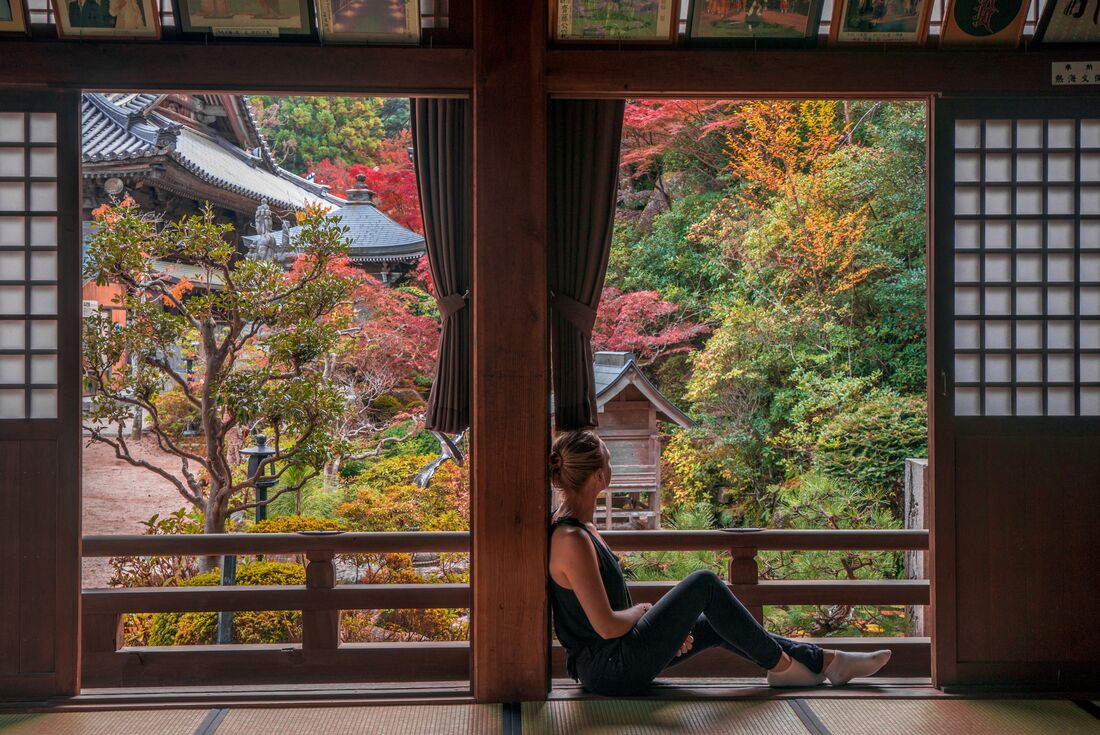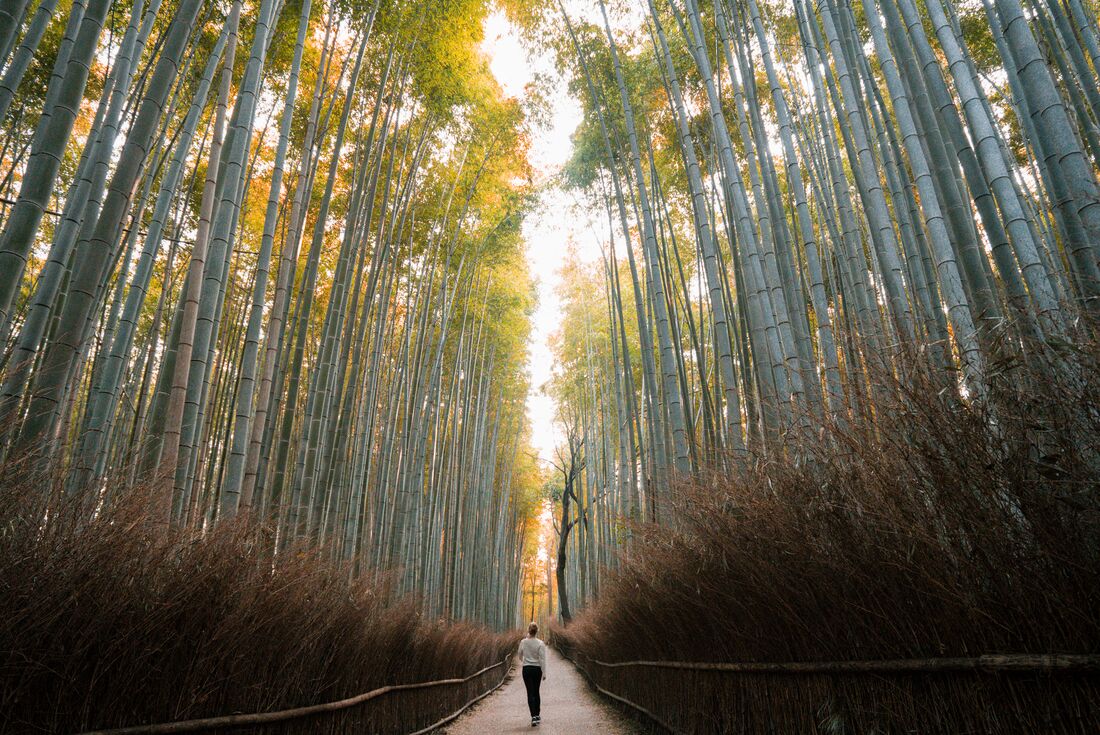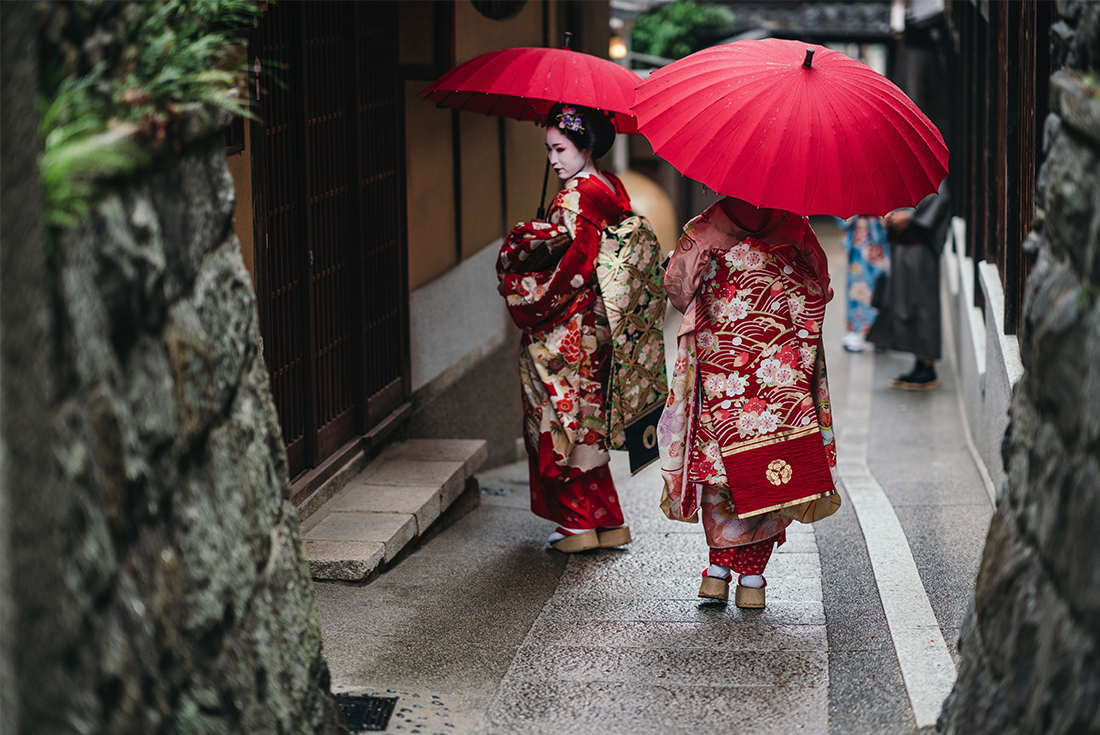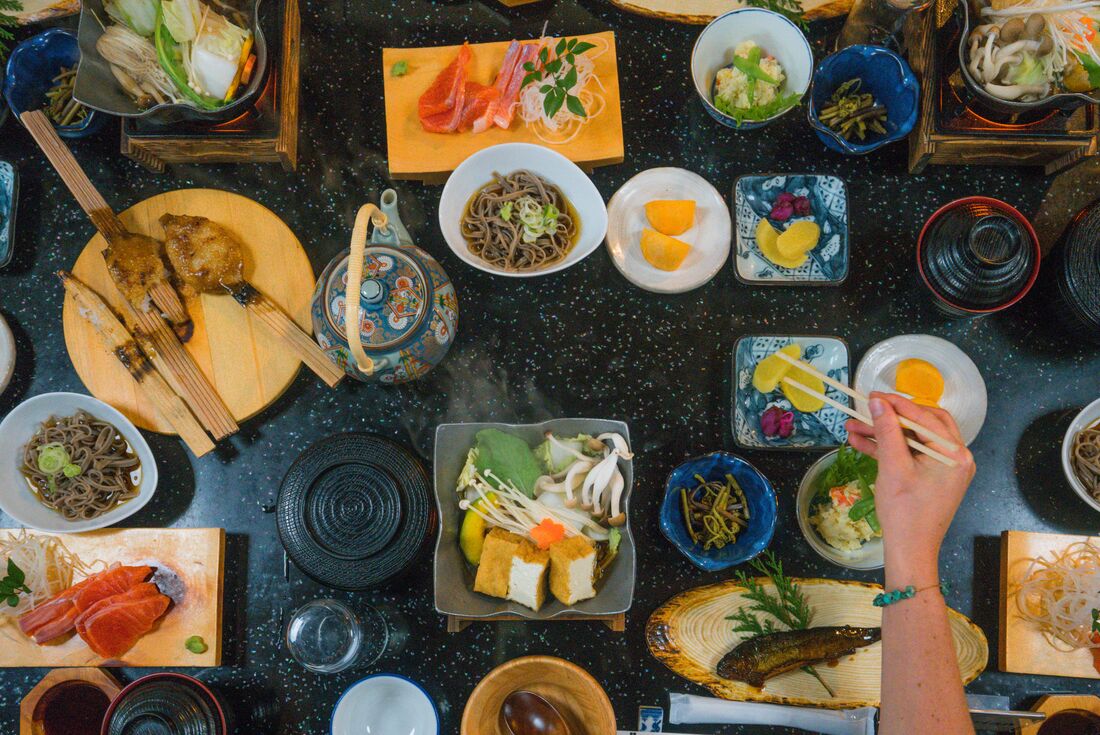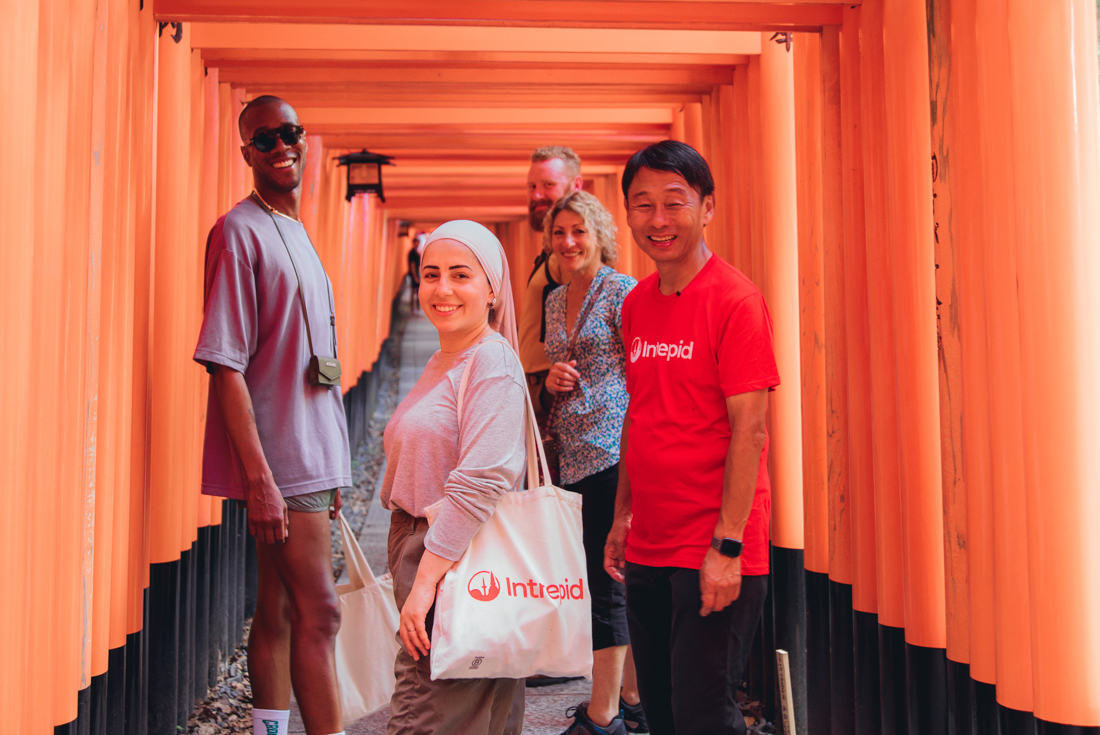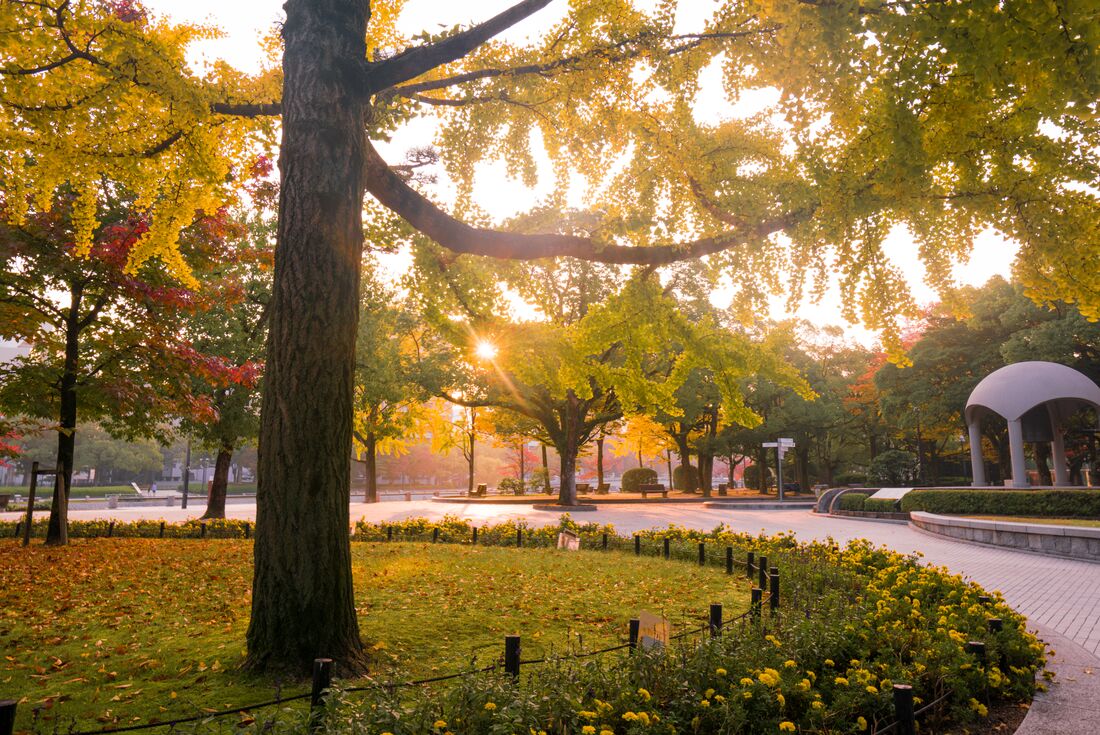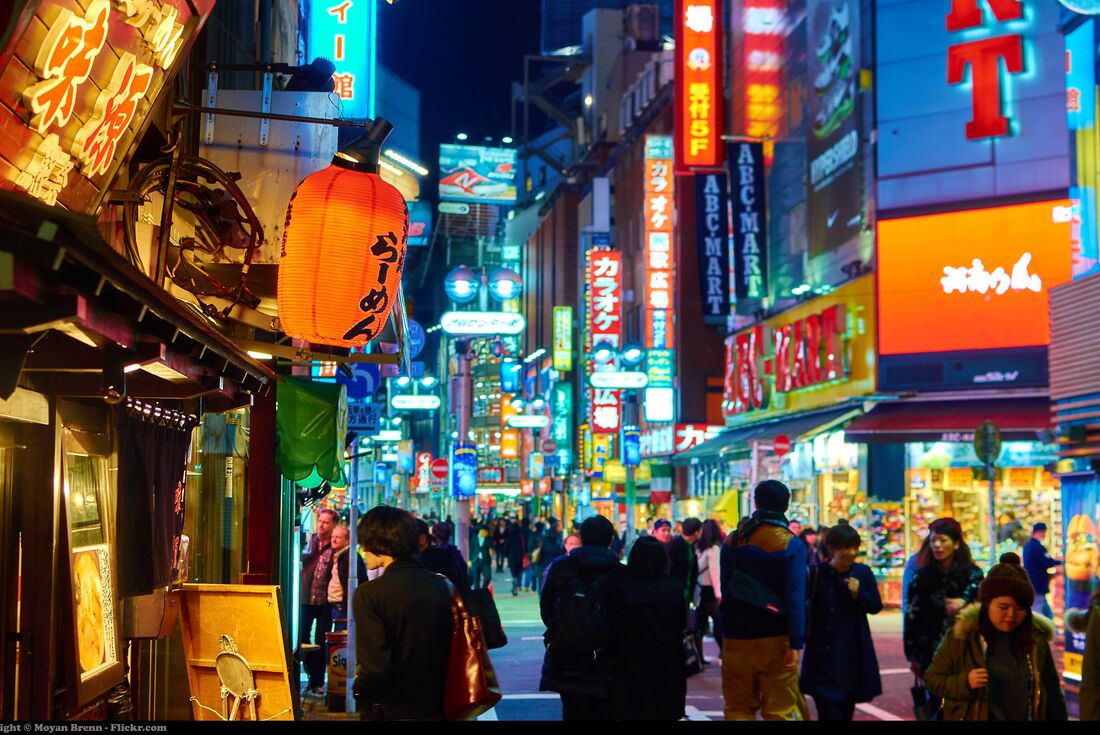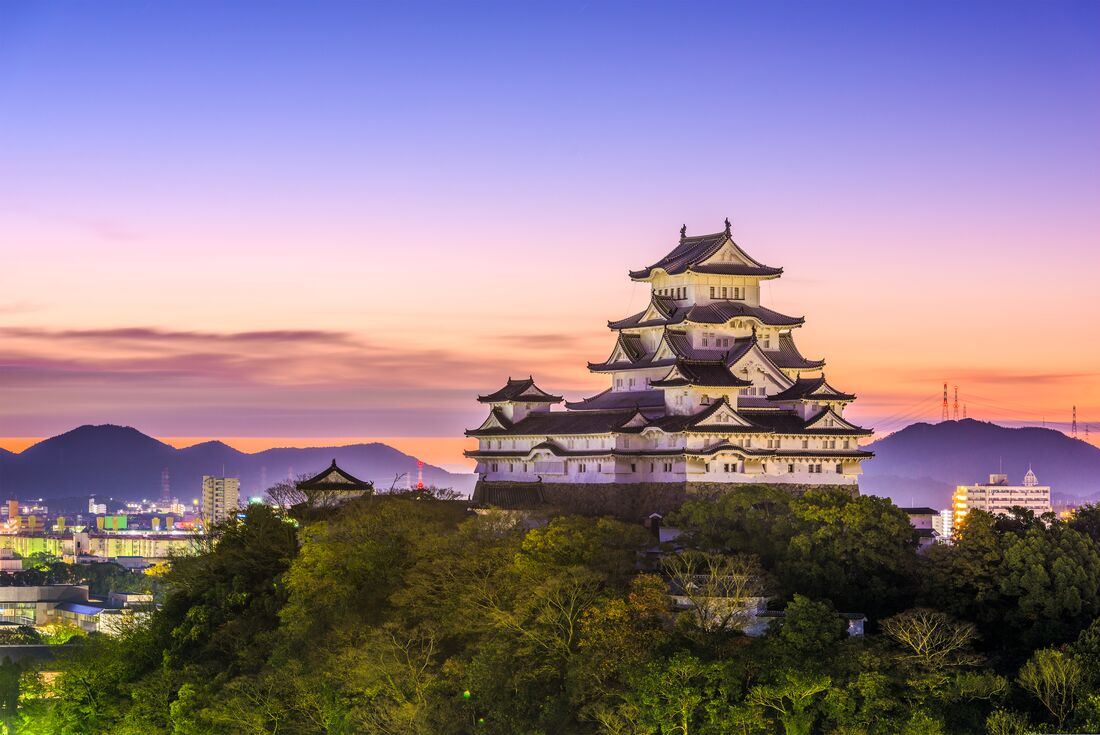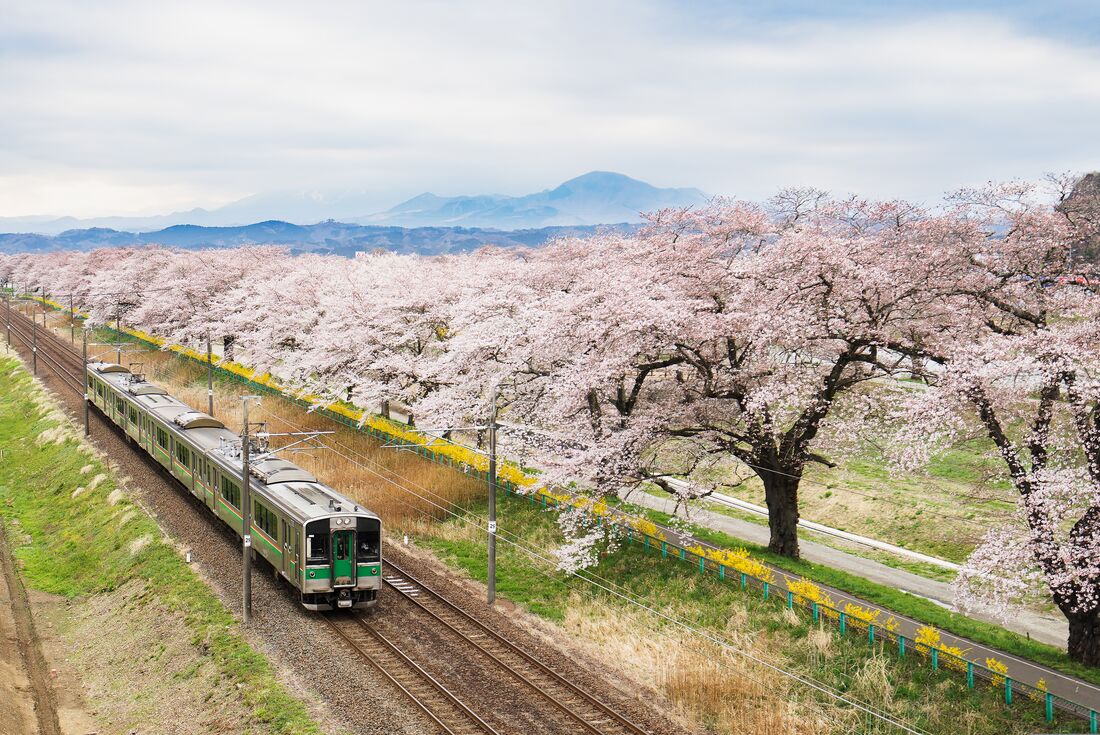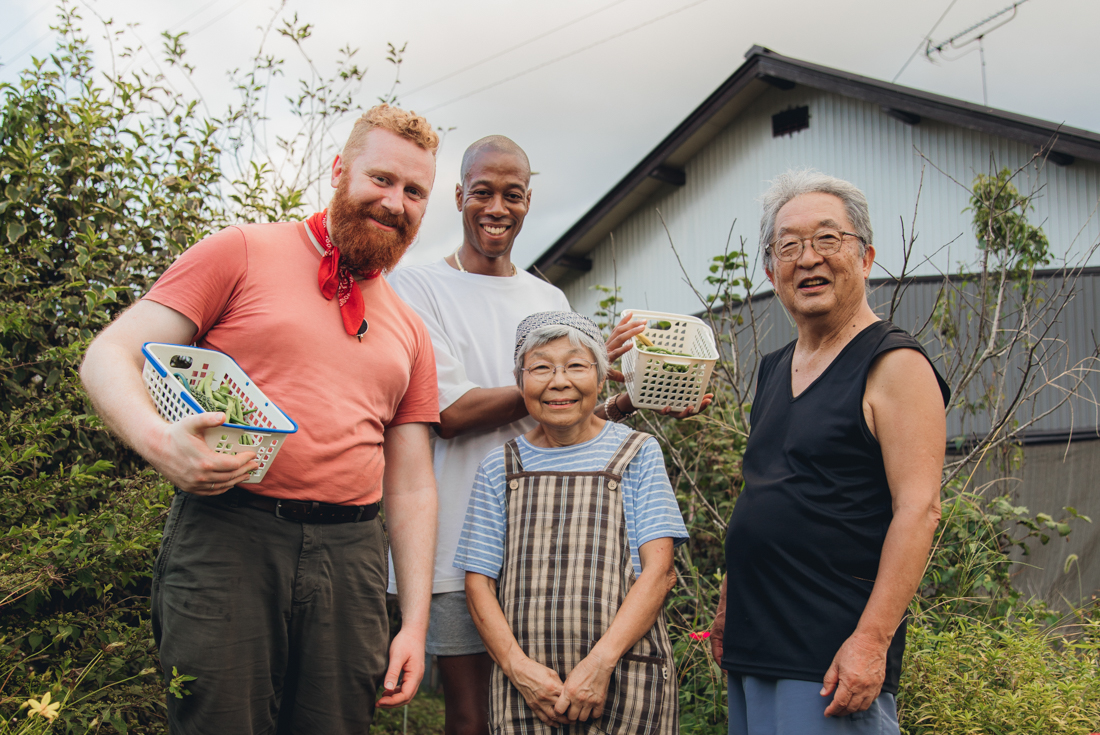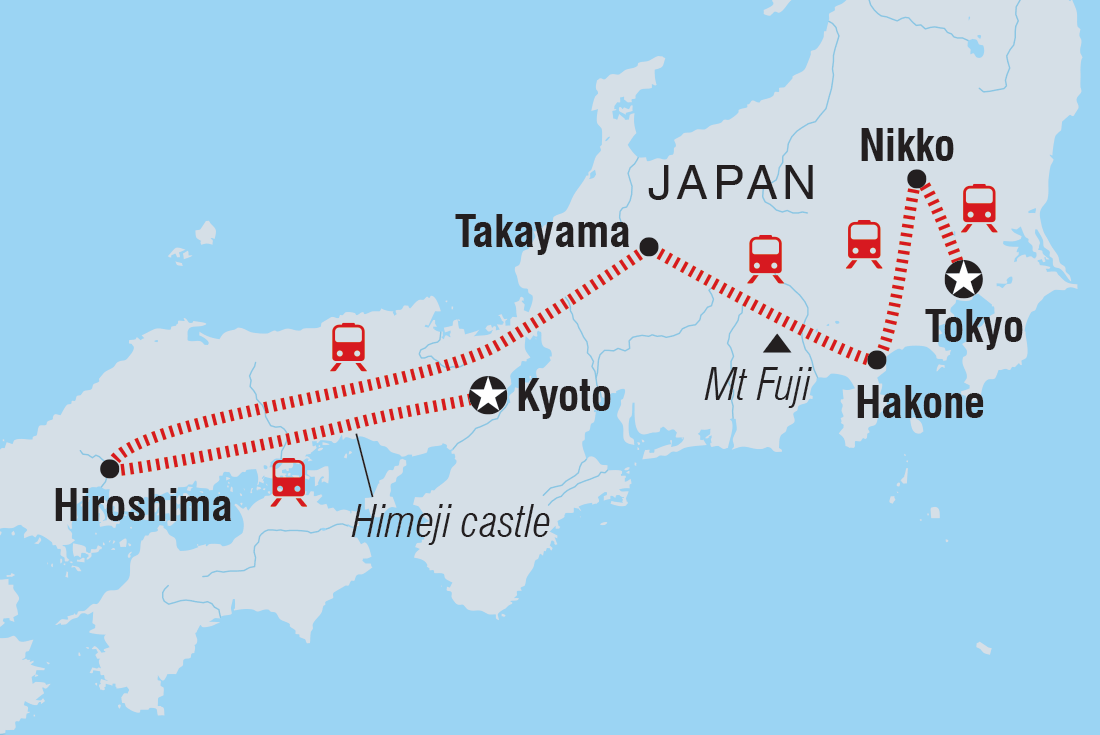Japan: Land of the Rising Sun
Japan: Land of the Rising Sun
This 13-day tour of Japan will introduce you to the cultures – old and new – that define this small but influential archipelago. Beginning in tech-mecca Tokyo and finishing with three nights in Kyoto, this immersive tour will also introduce you to lesser-known cities through Japan’s centre and southern reaches. Discover scenic beauty on the Hakone ropeway, sip the best sake in Takayama, find out about the Hiroshima of today and wonder at the floating torii gate of Miyajima. You’ll have a local to guide you through these lesser-known destinations and reveal layers of culture and history.
Tour At a Glance
- Soar high above Lake Ashi and (on a clear day) get a glimpse of glorious Mt Fuji on a ride on the Hakone ropeway.
- Be impressed by the efficiency and ultra modernity of Japan’s bullet trains as you zip from place to place.
- Explore traditional Japanese culture in Edo-period Takayama and visit a folk village, tour a 600-year-old market and a enjoy a sake brewery tasting.
- Visit the Peace Park for moving insight into the devastation of the atomic bomb in Hiroshima, then cruise to peaceful Miyajima Island where wild deer roam the streets.
- Finish your trip with three nights in Kyoto, Japan’s cultural capital and home to literally thousands of temples, the Gion District where Geisha entertain the wealthy elite and renowned Kyoto sushi.
- Tour code: CJST
- Group Adventure
Dates & Prices
Is this trip right for you.
- Japan is best explored on foot and by public transport. You’ll need to be fit enough to spend most of each day on your feet and able to handle your luggage as you navigate busy train stations. We recommend comfortable shoes and packing light.
- In some destinations, you may be staying in a minshuku, a Japanese-style inn. It’s a great taste of tradition; however, not everyone finds futon mattresses on the tatami floor, tiny bathrooms and proximity to other guests as comfortable as more Western-style hotels and beds. Read more about it in the Accommodation section of the Essential Trip Information. For some departures, we may swap them with hotels or vice versa depending on seasonal availability. Please consult your booking agent if you need more details.
- This trip is a great way to see a lot in a short period of time and it can be part of a longer itinerary if you have more time to explore. You might like to check out Ultimate Japan.
- Double rooms in Japanese hotels can be smaller than you may be used to (e.g. 20 sqm). Every effort will be made to accommodate double room requests. However, during busy periods, there may be occasions when we are unable to offer a double room, so a twin room will be provided.
Accommodation
- Hotel (8 nights)
- Japanese Inn ( 4 nights)
Joining point description
The B Asakusa is located in Tokyo's downtown Asakusa district and is located within 100m distance of several subway stations. The hotel provides immediate access to the historical sights of Asakusa and the Sumida River, as well as the main Tokyo hub of Ueno where Tokyo's main national museums are located. The traditional life of old Edo (the former name for Tokyo) can still be experienced in this part of Tokyo's central north-west.
Joining point instructions
Japan has a very efficient public transport service and there are many ways to get from the two airports in the Tokyo region (Narita Airport or Haneda Airport) to your hotel. Narita is located approx. 65 km from Tokyo and taxi fares are expensive given the distance (around JPY25,000). Haneda Airport is closer to central Tokyo and a taxi fare will cost around JPY6,000-10,000.
Public Transport
If you prefer to make your own way to the hotel from Narita, there are various connections either by express train or limousine bus to Tokyo Station or Ueno Station and then by local train, subway or taxi to the Agora Place Asakusa which is located in Asakusa near Ueno. The airport information desks can provide helpful advice too. The most direct way is by the Keisei Skyliner express to Keisei Ueno Station (approx. JPY2,500 and 40 mins) and then by subway or taxi. The Narita Express will take you into Tokyo Station (approx. JPY3,000 and 50 mins) and you will then need to change to the local Yamanote line, subway or taxi. If you're travelling from Haneda Airport, the most direct option is the Keikyu Line Airport Limited Express (approx. JPY700 and 45 mins) and then subway or taxi. Please check the transport details on the hotel's website:
If you're having any problems finding the hotel, ring the hotel directly (you can use one of Japan's green public phones with coins of JPY10 or JPY100).
Finish point description
Karasuma Kyoto Hotel is located in the downtown area of central Kyoto, approx. 400m from the main shopping street of Shijo Street and the Nishiki Market. There are subway stations and bus stops nearby so it's easy to get to Kyoto's main sites. There are plenty of cafes, restaurants, supermarkets and department stores in the immediate neighbourhood. The Gion district (including Ponto-cho), the Kamogawa River and the Higashiyama temple precinct are also accessible by foot, within 1.5km away.
Finish point instructions
- Japan has a very efficient public transport service and there are many ways to get from your hotel to the two airports in the Kansai region (Kansai Airport (KIX) or Itami Airport). Both airports are located a long way from Kyoto so we advise you use the efficient public transport options available rather than considering a taxi. Please speak to your leader on Day 1 about options.
Safety
- Most national governments provide regularly updated foreign travel advice on safety issues involved with international travel. We recommend that you check your government's advice for their latest travel information before departure and ensure that your travel insurance covers you for all destinations and activities on your trip. Please refer to our website's safety page for links to major travel advisories and updates on safety issues affecting our trips here: We strongly recommend the use of a neck wallet or money belt while travelling, for the safe-keeping of your passport, flight tickets, cash and other valuable items. Leave your jewellery at home - you won't need it while travelling. Many of our hotels have safety deposit boxes, which is the most secure way of storing your valuables. A lock is recommended for securing your luggage. Your group leader or local representative will accompany you on all included activities, however, during your trip you'll have some free time to pursue your own interests or relax and take it easy. While your group leader or local representative will assist you with the available options in a given location, please note that any optional activities you undertake are not part of your Intrepid itinerary, and Intrepid makes no representations about the safety of the activity or the standard of the operators running them. Please use your own good judgement when selecting an activity in your free time. Please also note that your group leader or local representative has the authority to amend or cancel any part of the trip itinerary if it's deemed necessary due to safety concerns. Intrepid's operational safety policies can be viewed on our website at the link below. We recommend that you take a moment to read through this information before travelling, and would appreciate any feedback on how safety is being managed on our trips.
- Crime levels are low. It is generally safe to walk around at night and to travel on public transport, but you should maintain the same level of vigilance as you would at home and take sensible precautions. Reports of inappropriate touching or ‘chikan’ of female passengers on commuter trains are fairly common. The police advise that you shout at the perpetrator to attract attention and ask a fellow passenger to call the train staff. The Roppongi entertainment district of Tokyo is considered a higher risk area for crime.
Medical and health information
- All travellers need to be in good physical health in order to participate fully on this trip. For the safety and wellbeing of yourself and others, if you are unwell prior to travelling, please stay at home and contact us to make alternative arrangements.
- When selecting your trip please make sure you have read through the itinerary carefully and assess your ability to manage and enjoy our style of travel. Please note that if in the assessment of our group leader or local representative a traveller is unable to complete the itinerary without undue risk to themselves and/or the rest of the group, we reserve the right to exclude them from all or part of a trip without refund.
- You should consult your doctor for up-to-date medical travel information or for any necessary vaccinations before departure. We recommend that you carry a first aid kit as well as any personal medical requirements in their original packaging as they may not easily be obtained while travelling. If you are carrying medication, ensure you check your government's foreign travel advice for any local restrictions or requirements.
GENERAL HEALTH
Food and dietary requirements
- The Japanese daily diet contains gluten (ie. in flavourings such as soy sauce) and seafood (dashi, or fish stock, is the basis of most dishes, even vegetable ones), so we highly recommend that vegetarians, vegans and coeliacs do their own online research before travelling about some of the options that might be available to them. While our leaders will assist you whenever they can, there may be some included meals that are fixed in advance and not flexible, such as those included at ryokans, and cannot be modified for different diets. For those suffering from particular food allergies, your group leader will endeavor to disclose to their fullest knowledge the main ingredients in dishes being consumed. It is, however, still your personal responsibility to ensure that you do not ingest any foods to which you are allergic.
- Food and drink are such a high part of Japanese culture. Here are some links to get your tastebuds tingling
FOOD IN JAPAN
Important Notes
- On this trip you will need to carry your own luggage for up to 30 minutes at a time. Train stations are quite complex and usually require climbing a lot of stairs, especially when doing a quick transfer from train to train. Elevators aren't always available and cannot accommodate many people at a time, so if you bring a suitcase, please ensure you are able to lift and carry it up and down stairs yourself without difficulty. Our ryokans allow suitcases, but you'll need to carry it onto the tatami floor in the room, instead of wheeling it. A backpack is often preferred by travellers for these reasons.
- We recommend that you keep your main luggage weight around 15kg and certainly no more than 20kg.
- Luggage allowances for train travel are calculated by adding the length, width and height together. We recommend your main piece of luggage does not exceed 159cm.
- Luggage between 160cm and 250cm requires pre-booking additional luggage space for an additional fee. This can be difficult to secure given how busy Japan's rail system is. Luggage over 251 cm will NOT be permitted on Shinkansen trains.
- If you have oversize luggage you will need to use luggage forwarding services. Additional charges will apply. Please speak to your leader if you need to utilise this service.
- Japanese trains don’t have large luggage racks for big suitcases so it's best to pack as light and small as possible so that you are not blocking aisles or taking up extra seats.
- A day pack for carrying essentials when exploring destinations, as well as for any shorter overnight stays, will be useful.
- Weather in Japan varies greatly between summer and winter so be sure to check whether you’ll need a beanie and thermals or light cotton layers during your visit.
- Below is a link to our ultimate packing list, a guide to get you started
- Please bring your own water bottle to refill along the way. Although it can be difficult to avoid bottled water when travelling, please use the water dispensers which are provided on some of our vehicles and at some of our accommodation. Your group leader or local representative will advise whether tap water is safe to drink in your destination, and if it is, you can simply refill it with tap water. When unable to avoid bottled water, it is better to buy the largest available and distribute it into your smaller bottle for the day. If you are walking or trekking as part of your trip you will need to carry at least 2L of water with you.
LUGGAGE IN JAPAN
LUGGAGE SIZE RESTRICTIONS ON JAPANESE TRAINS
DAY PACK
SEASONAL CLOTHING
PACKING LIST
BOTTLE
Passport and visas
PASSPORT
You’ll need a valid passport to travel internationally and most countries require your passport to have a minimum of 6 months validity, so remember to check the expiry date.
We need your passport information to get everything ready for your trip so it’s important that the information on your booking matches your passport exactly. Please take care to provide the correct details. We recommend carrying a copy of the photo page of your passport while travelling and leaving a copy at home with family or friends.
VISAS & ENTRY REQUIREMENTS
Many countries require a visa and obtaining the correct visa for your trip and any countries you may transit through is your responsibility. We recommend you check your visa requirements as soon as you have booked your trip. This will ensure you have time to prepare your documents and for your visa application to be processed. You can check the entry requirements for your nationality on your government's foreign travel advisories, consular websites or on our page here: www.intrepidtravel.com/visa-entry-requirements
Travel insurance
Travel insurance is compulsory on all our trips for those travelling internationally. We require that at a minimum you are covered for medical expenses including emergency repatriation. If you are travelling within your home country or region please confirm before travel that you are entitled to access the public medical system easily should an accident occur. We strongly recommend all travellers have a policy that also covers personal liability, cancellation, curtailment and loss of luggage or personal effects. For international trips, you will not be permitted to join the group until evidence of travel insurance and the insurance company's 24-hour emergency contact number has been sighted by your group leader or local representative.
If you have credit card insurance your group leader or local representative will require details of the participating insurer/underwriter, the level of coverage, policy number, and emergency contact number rather than the bank's name and your credit card details. Please contact your bank for these details prior to arriving in-country.
For travellers who reside within the European Union, Switzerland or USA the requirement to purchase travel insurance cannot be compulsory. However the purchase of travel insurance is still highly recommended, and travellers from these regions who decline travel insurance when travelling outside of their home region must sign a Travel Insurance Waiver Form at the Group Meeting, recognizing personal responsibility for emergency medical and repatriation costs should they arise.
For assistance with travel insurance or other services, please visit the link below:
Responsible travel
Our Responsible Travel Policy outlines our commitment to preserving the environment, supporting local communities, protecting the vulnerable, and giving back to the places we travel. All our trip group leaders or local representatives, suppliers, and staff are trained on these principles and are core to us delivering sustainable, experience-rich travel.
Explore the different parts of our Responsible Travel Policy by visiting:
LOCAL CUSTOMS
It's always a good idea to learn something about local customs before you travel, and visiting Japan is no exception. Your leader will be on hand to guide you through cultural differences during your trip, but here are some tips to get you started:
CLOTHING
While Japan is known for its 'out there' fashions overall it is quite a conservative country. Please remember that we spend time at temples, working monasteries, holy shrines, recreated villages and castles, cooking schools and ancient gardens. At these places it is important to be respectful to the staff and other visitors by wearing clothing that covers your shoulders and knees.
WHALE MEAT
We are big supporters of the protection of endangered species around the world. It is against our Responsible Travel policy for our leaders to take passengers to places that use cruel practices or supply or serve foods that are on the endangered species list, such as whale, turtle, tiger, bird’s nests, pangolin and shark. Although a global ban on commercial whaling came into effect in 1986, approximately 1,000 whales are still being killed every year. We do not visit places that serve whale meat on any of our trips, nor will your leader guide you to where it is offered.
TATTOOS IN JAPAN:
Please note, decorative tattoos are uncommon in Japanese culture and therefore you may receive curious and sometimes disapproving looks from locals. Generally, nobody will make a comment about your tattoos but please endeavour to wear modest clothing and check rules for public onsens.
Climate and seasonal
PEAK TRAVEL TIMES
Please be aware that while travelling during major national holidays (late Apr to early May) and peak seasons in Japan (Apr-May/Sep–Oct) are fascinating and exciting times to travel, there are also some downsides. There will be huge crowds at most tourist attractions and on all public transport. It's common for there to be difficulties in securing train tickets at our usual preferred times, hotels become overbooked, traffic jams and changes to the itinerary without prior notice can be necessary. If you decide to travel during peak periods come with a sense of adventure and flexibility and we are sure that your experience will still be rewarding and memorable.
Feedback
Can’t stop thinking about your adventure? Tell us all about it! We read each piece of feedback carefully and use it to make improvements for travellers like you. Share your experience with us at:
* Offer valid for selected dates | Subject to Availability | Terms and Conditions Apply
Why our customers love us...

Offering dependable travel solutions from the UK to the world over since 1984, we've gained the trust of a loyal customer base. Our customers know they can rely on us to offer the best prices and to provide impartial, expert advice on finding travel solutions to match their interests, time and budget.
Why book with Southall Travel?
- Exclusive deals for hundreds of destinations
- 24/7 expert assistance
- Price Match Guarantee*
- No fee on credit & debit card transactions
- ATOL protected
- Flexible payment options
- Low deposits
- *within 24 hours of booking
Talk to our Travel Expert
![]() Chat Online
Chat Online
With a Travel Expert
What our customers say...
Subscribe for latest deals
Sign up now and get the best holiday and flight deals straight in your inbox!
Visit www.gov.uk/foriegn-travel-advice for latest destination travel advice from the Foreign Commonwealth & Development Office (FCDO) including Covid19 travel advice, security and local laws, and passport and visa information.


